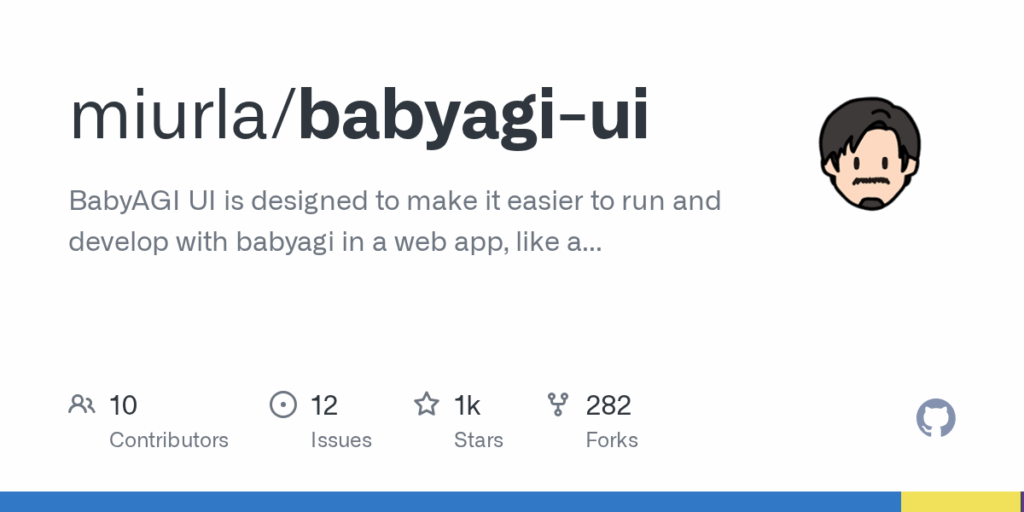babyagi ui
Basic Information
BabyAGI UI is a web application project intended to make it easier to run, develop, and demo BabyAGI-style autonomous agents in a browser-based interface. It is a port of the original BabyAGI implementation using LangChain.js and Next.js to provide a ChatGPT-like front end, backend aggregation of agent logic, and hooks for frontend interaction. The repository integrates with Pinecone for vector storage and can optionally use SerpAPI for web search. It includes tooling and examples to configure environment variables, create a Pinecone index, and run the app locally or deploy to Vercel. The README notes that the project has been archived and is read-only and warns that continuous agent execution can incur high OpenAI API usage and requires correct OpenAI API setup.








